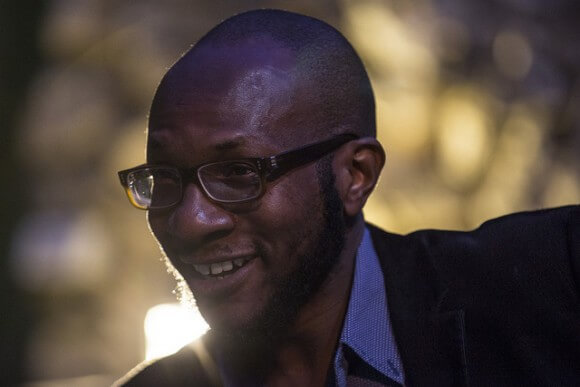Last Tuesday evening, four writers gathered in a small room at the New School to participate in a panel titled “Breaking the Silence on Palestine.” Creative Writing professor Zia Jaffrey moderated the panel, which included the poet and novelist Sinan Antoon, the Palestinian novelist and journalist Ibtisam Azem, Jewish American poet Jason Schneiderman, and Nigerian-American novelist Teju Cole.
The four writers read aloud from their respective chapters in the anthology Extraordinary Rendition, released in December. The book features 65 writers examining the relationship between the U.S. and Palestine. Jaffrey noted that there was great hesitation on the part of some writers to participate, but Operation Protective Edgeof 2014 served as a galvanizing force that convinced many of the importance of such a collection. Other notable participants included George Saunders and Alice Walker.
After a brief introduction by Jaffrey, Azem treated the packed-to-capacity room to a reading in Arabic while a screen behind her displayed the English translation (Jaffrey mentioned that Antoon was in the midst of translating her novel The Book of Disappearance). She said that she wanted to read in the original Arabic to preserve what might be lost in translation, and her soft speaking voice gave a sad and beautiful resonance to the Arabic words.
After Azem came Teju Cole, the most well-known name of the night and winner of the 2012 PEN/Hemingway award for his novel Open City. Cole talked about his visit to the West Bank for the Palestine Festival of Literature in June 2014. Before reading from the book, he talked about the role of literature: “Through the words of others, through the influence of their sympathies, we become awake to something that we might have thought had little to do with us.” He then went on to read from his section of the book in a slow, deliberate manner.
Describing a five-hour wait at the King Hussein checkpoint between the West Bank and Jordan, Cole observed wryly, “there’s a fine art to wasting people’s time.” He joked that Nigerians love titles and referred himself facetiously as a JP – short for Jerusalem Pilgrim – and observed that seeing Israeli soldiers guarding a settlement reminded him of “what Laos was like on the morning after a coup.” In a journalistic yet lyrical mode, he documented numerous injustices of occupation, including an anecdote about a boy who wasn’t allowed to see his father who was dying of cancer because he had the wrong kind of permit. Though all the writers acquitted themselves admirably, it was the soft-spoken Cole who quietly stole the show.
When he finished, Antoon read two short poems, the first by renowned Palestinian poet Mahmoud Darwish and the second his own. A gentle bear of a man, Antoon let his emotion inflect the words with heartbreak as he read his poem about a boy speaking to his grandfather:
Are we going back to Jaffa, Grandpa?
We can’t
Why?
We are dead
So are we in heaven?
We are in Palestine
After a somewhat incongruous reading by Schneiderman about his experience teaching Merchant of Venice, the event concluded with a fairly unmemorable Q&A. It was clear that, despite some minor differences, everyone was on the same page.
Panels like these are nice, but one always leaves with the impression that the speakers are preaching to the choir. Apart from the occasional Zionist troll (mercifully absent that night), people who attend the events already know about Israeli apartheid and the dehumanizing brutality of occupation.
Yet there was a glimmer of promise that night, a hint of possibility that rests in the medium of literature itself. Poetry and prose carry an emotional weight that not even the most astute treatises by Said or Chomsky can match. It may be that the way to enlighten the world about Israel’s crimes is not through straight reporting, but in using the music of language to create a more visceral reaction in the reading public. Reports can educate people and statistics can provide them with rhetorical ammunition, but a novel or a poem can break their heart.
Correction: Initially this article ascribed Sinan Antoon’s poem about a boy speaking to his grandfather to Mahmoud Darwish ~ Ed.



Sometimes the choir needs to pep itself up by a communal gathering. Many churches which have, perhaps, given up on the old-time-religion, still exist and meet to serve as a community gathering place.
It’s not all bad, preaching to the choir, but of course more is needed.